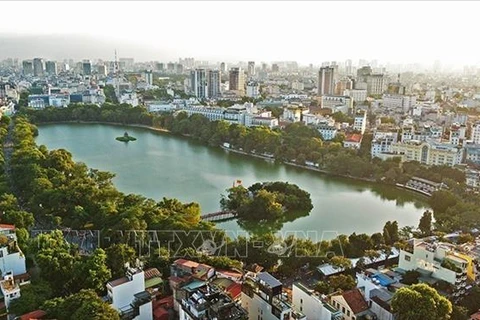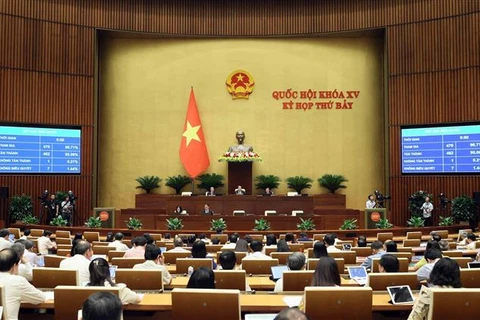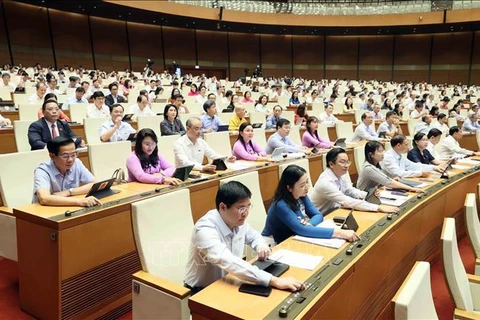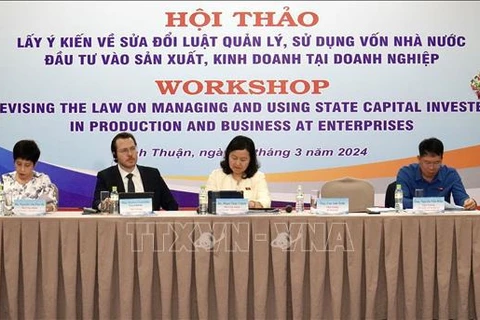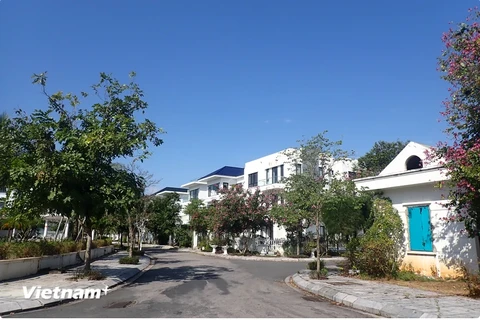
Hanoi (VNA) - The revised Capital Law, passed by the 15th National Assembly during its 7th session, features a range of new policies that are meant to empower the city to unlock its full potential, free from ‘institutional bottlenecks’.
The revised law, emphasising further decentralisation and delegation of authority to the municipal authorities, consists of 54 articles arranged into seven chapters – an increase of three chapters and 27 articles compared to the original law first passed more than a decade ago in 2012.
With institutional breakthroughs, businesses in the trade sector are optimistic about expanding investments and operations, aiming to contribute further to the capital’s growth and realise the vision of a civilised, prosperous, and modern Hanoi.

Nguyen Hung Quang, Vice President of the Vietnam International Law Association, said Hanoi’s decentralisation efforts in recent years have simplified administrative procedures for residents and businesses. Many processes previously managed at the provincial level are now handled at the district level, reducing costs and increasing efficiency for enterprises.
According to Dinh Viet Hoa, President of the National Startup Association, Hanoi continues to develop robustly and plays a crucial role as both the capital and one of Vietnam’s two largest economic centres.
“The implementation of the revised Capital Law will create a clear legal framework and a more open business environment, encouraging more entrepreneurs to start businesses, create jobs for the people of Hanoi, and drive economic growth,” he said.
The business community expects the revised law to enhance support for enterprises, boost production and business efficiency, and address institutional and resource challenges in the current economic climate.

Do Tue Tam, Deputy General Director of the Hanoi Trading Corporation (Hapro), highlighted that after 20 years of growth, Hapro has established itself as a prominent export brand, operating in nearly 80 countries and territories and specialising in agricultural products, processed foods, and handicrafts.
The development of businesses in Hanoi reflects significant changes in the city’s economic and social policies, positioning private enterprises as a vital driver of the national economy.
Nguyen Van, Vice President of the Hanoi Supporting Industry Business Association (Hansiba) and Director of the SCSI-Hansiba Startup Support Centre, noted that alongside its well-established startup ecosystem, Hanoi has focused on refining mechanisms and policies to encourage business growth.

Innovative startups in Hanoi are thriving. Currently, the city is home to over 1,000 innovative startups, accounting for 26.32% of the nation’s total of 3,800. Since 2016, these businesses have attracted billions of US dollars in investment, with hundreds of successful fundraising rounds.
Mac Quoc Anh, Vice President and General Secretary of the Hanoi Small and Medium Enterprises Association, emphasised that the business community is a key driver of the economy, playing a vital role in Hanoi’s development across different periods. The growth of entrepreneurs is closely tied to the capital’s ongoing reform and modernisation efforts./.
